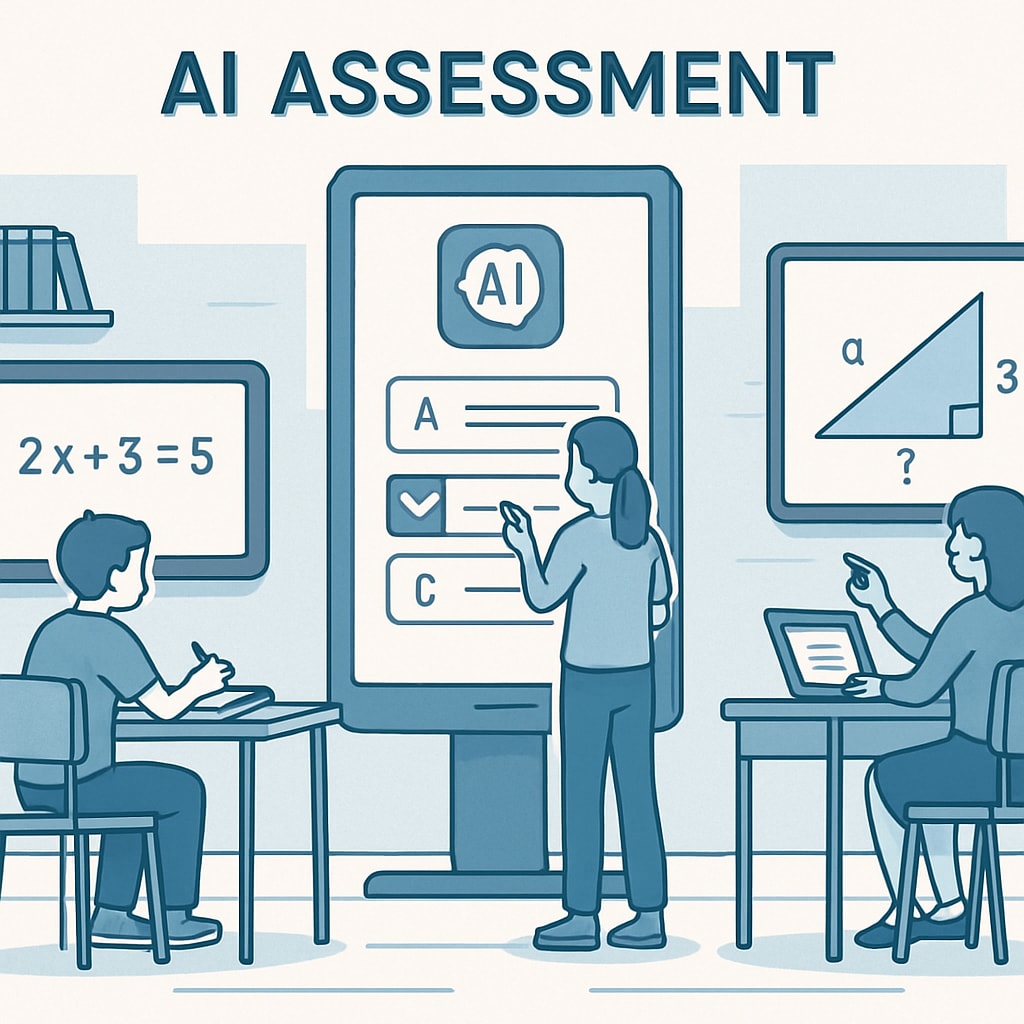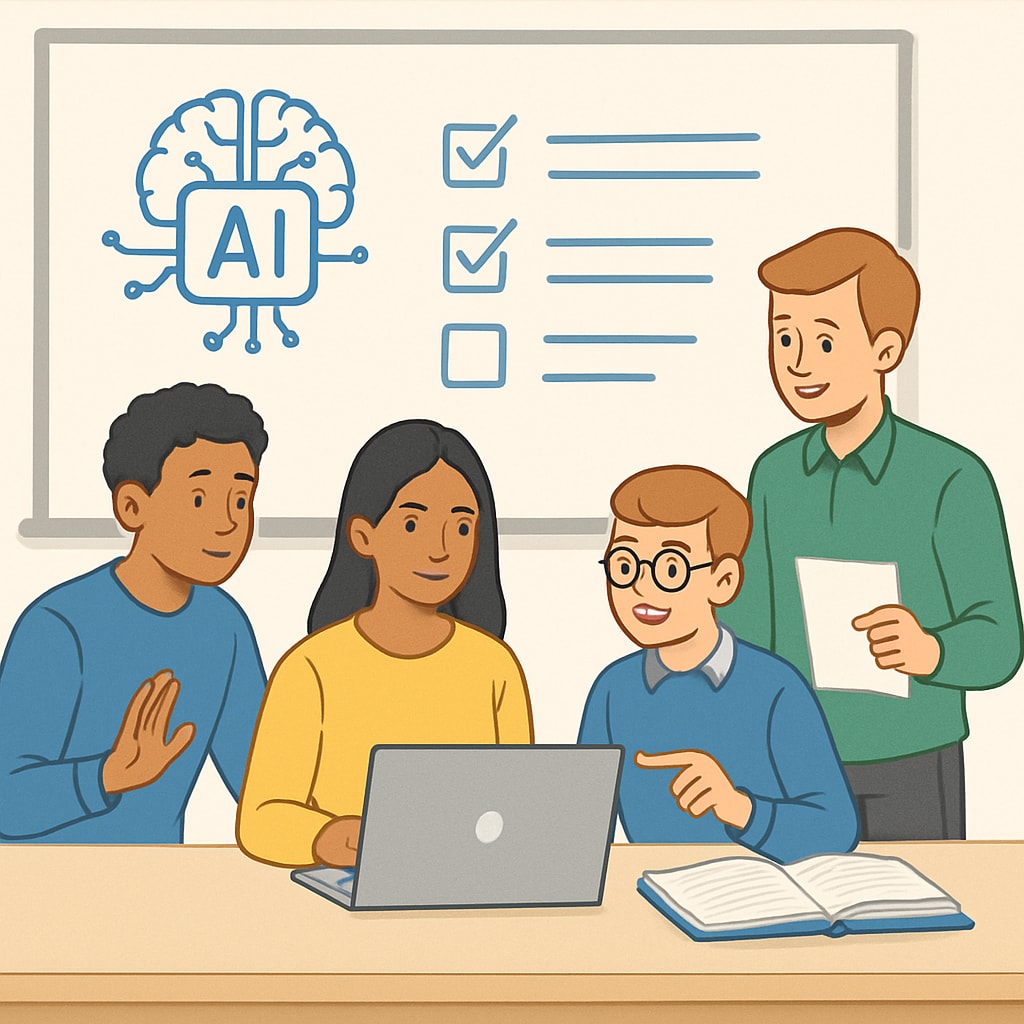Artificial intelligence is rapidly transforming the educational landscape, challenging the relevance of traditional competitive exams in talent selection. As AI continues to redefine the way knowledge is acquired, shared, and assessed, the K12 education system must adapt to these changes. This article highlights why reforming competitive exams is crucial in the AI era and proposes methods to create a more inclusive and comprehensive talent evaluation system.
The Impact of AI on Education and Assessment
The integration of AI into education has revolutionized teaching methods, personalized learning, and access to information. Tools like adaptive learning platforms and intelligent tutoring systems are providing students with customized educational experiences. However, while the teaching side is evolving, assessment methods, particularly competitive exams, remain largely unchanged. These exams, designed for memorization and standardized testing, are ill-equipped to evaluate the diverse skill sets required in an AI-driven world.
For example, skills like critical thinking, creativity, and collaborative problem-solving are becoming increasingly important, yet traditional exams fail to measure these effectively. AI tools offer opportunities to assess students in more dynamic and interactive ways, such as through simulations, project-based evaluations, and real-world problem-solving scenarios.

Why Competitive Exams Require Reform
Competitive exams in their current form often emphasize rote learning and neglect adaptability, a core skill required in the AI era. Consider the job market of tomorrow: AI will automate repetitive tasks, leaving roles that demand innovative thinking, emotional intelligence, and interdisciplinary knowledge. Preparing students for such challenges necessitates a shift in how exams evaluate their capabilities.
Additionally, the pressure of competitive exams can have detrimental effects on students’ mental health. Reforming these exams to include multiple evaluation criteria, like group projects, oral presentations, and AI-facilitated assessments, can reduce stress and foster a more balanced educational experience.

Building a Diverse Talent Evaluation System
To align with the demands of the AI era, educational institutions must transition to multi-dimensional assessment frameworks. Here are a few strategies for implementation:
- Project-Based Assessments: Encourage students to work on real-world problems, fostering creativity and practical application of knowledge.
- AI-Powered Simulations: Use AI to simulate complex scenarios that test critical thinking and decision-making abilities.
- Peer and Self-Evaluation: Introduce systems where students assess their own work and provide constructive feedback to peers, enhancing interpersonal and reflective skills.
- Portfolio-Based Evaluation: Replace one-time exams with portfolios showcasing students’ progress and achievements over time.
These methods can offer a more holistic view of a student’s abilities, ensuring that the evaluation process recognizes diverse talents and prepares them for future challenges.
Challenges and Opportunities in Reforming Competitive Exams
While the benefits of reform are clear, implementing these changes comes with challenges. Resistance from stakeholders accustomed to traditional methods and the need for significant technological investment are key hurdles. However, the opportunities far outweigh the challenges. By embracing AI-driven assessment tools, educational systems can become more inclusive, equitable, and forward-thinking.
Governments and institutions should consider pilot programs to test new evaluation frameworks, leveraging insights from successful models abroad. For example, Finland’s emphasis on skill-based learning and assessment offers valuable lessons for reforming competitive exams globally (Education in Finland on Britannica).
Conclusion
Artificial intelligence is not just a tool for learning—it’s a catalyst for change in how learning is evaluated. Reforming competitive exams in the K12 education system is no longer optional; it is a necessity to ensure students are equipped for the challenges of the AI-driven future. By adopting diverse and inclusive talent evaluation systems, we can nurture a generation of creative, adaptable, and well-rounded individuals ready to thrive in a rapidly evolving world.
Readability guidance: Short paragraphs, active voice, and lists ensure accessibility. Overuse of jargon is avoided, and transitions maintain flow and coherence.


